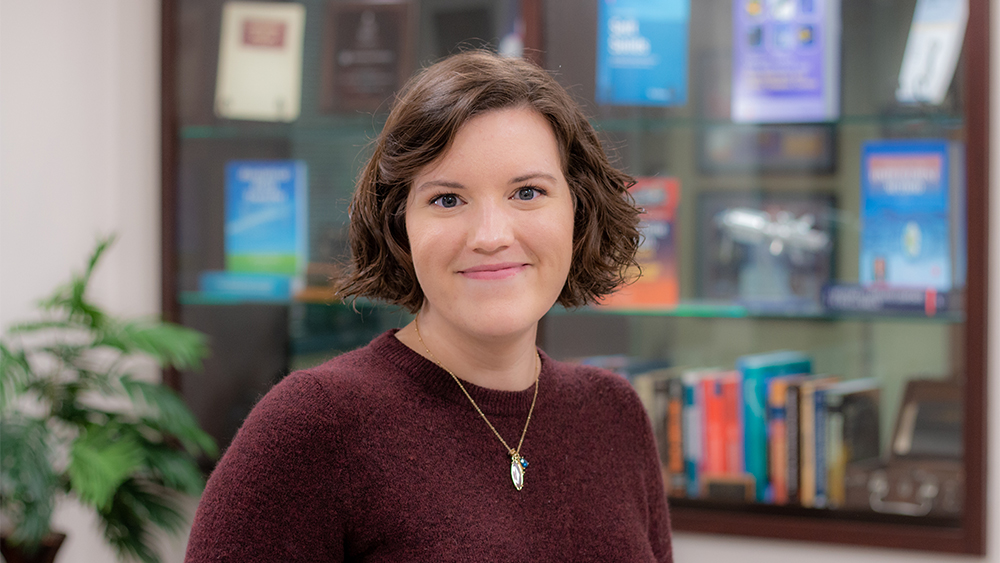
Catherine Dillier has always loved the science of mixing chemicals – now, her attention is on the fuel that makes rockets go.
Growing up with a strong interest in math and science, Dillier enjoyed mixing random household items together, spent summers doing educational workbooks and found refuge in her ability to solve equations.
Although she did not know then how to apply her interests, she has found her niche within the Turbomachinery Laboratory at Texas A&M University.
Her current research focuses on solid composite propellants. Using formulations, she adjusts additives to a propellant so it can meet specific criteria. This criterion can include things like burning rate and how this burning rate can affect the impact and temperature sensitivity, or the strength of a propellant.

“I get to formulate these propellants, and then burn them, it is the best of both worlds. You get the chemistry and then you get the combustion and fire,” Dillier said. “That’s the fun stuff. If you had told me when I was little that this is what I was going to do, I'd laugh and say that this is not a real job.”
As an undergrad, Dillier intended to work toward a safety certificate in chemical engineering until she crossed paths with Dr. Eric Petersen, director of the Turbomachinery Lab. Petersen invited her to tour the lab and offered her a position.
Dillier graduated from the department with her bachelor’s degree in December 2014, completed her master’s degree in 2016 and is now working toward her doctoral degree.
“The nice thing about mechanical engineering is that you're exposed to so much,” said Dillier. “You can find the avenue you like because of the broadness and available routes within mechanical. For me, that avenue is combustion.”